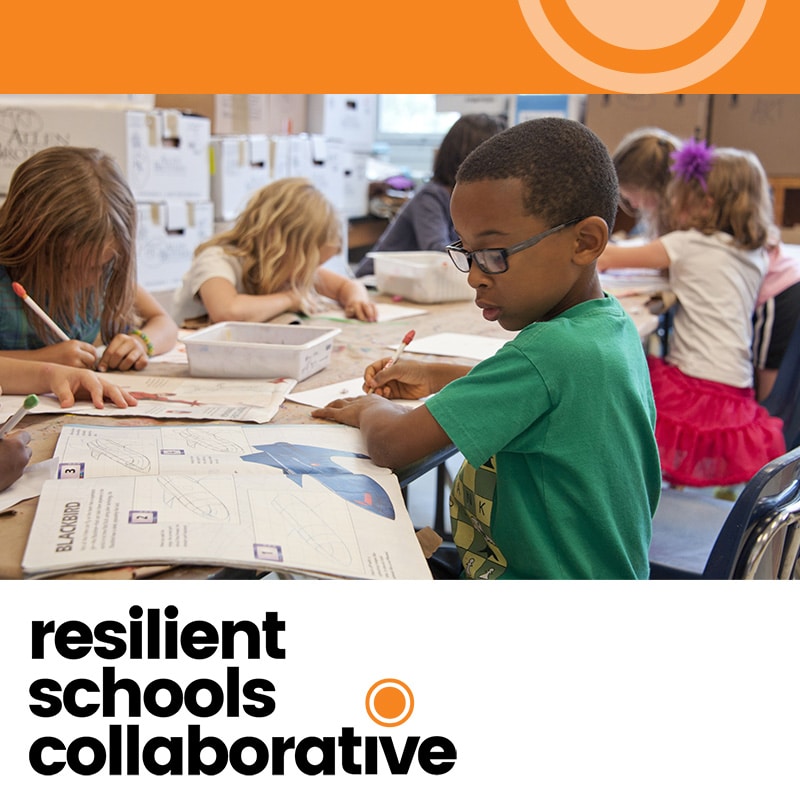
The Resilient Schools Collaborative (RSC) is a conceptual initiative of ARC Alternatives, Center for Resource Solutions (CRS), and KyotoUSA, with the mission of assisting public school districts in the installation of solar energy, battery storage capacity, and microgrids to add power resiliency during electricity outages and other emergency events.
Background
In response to recent electricity interruptions from public service power shutdown outages resulting from wildfires and other natural disasters in Northern California, a coalition of clean energy organizations launched the Resilient Schools Collaborative (RSC) with the mission of developing power-resilient schools through islanded microgrids using solar panels paired with onsite battery storage. The coalition includes Arc Alternatives, Center for Resource Solutions (CRS), and KyotoUSA, with a grant from the Bay Area Air Quality Management District (BAAQMD). Initially, RSC will partner with Oakland Unified School District and San Rafael City Schools to assist in supporting the technical and financial feasibility studies, with results being shared across Bay Area school districts.
Without a clear alternative to diesel and fossil-fuel based generators, power shutdowns will lead to significant local air and noise pollution on student campuses across the Bay Area. By keeping schools at least partially open during shutdowns, RSC aims to help districts provide a clean-power solution to power shutdown events will help reduce stressful disruptions to children, families, and the Bay Area workforce, as well as improve air quality and health outcomes for all communities.
The goal of RSC is to identify and share the technical and financial feasibility of using a combination of solar power, battery storage and microgrids to make school districts power resilient and emissions-free during public service power shutdown (PSPS) and other emergency events. The technical and financial feasibility analysis will also include a comparison of school campus sites with and without existing solar facilities.
Resources
Potential Funding Streams for School’s Resiliency Efforts. This funding matrix is intended to indicated potential funding sources for some or all of the elements of a “resilient” school, one that can operate during a PSPS event or other condition in which power to a school is disrupted. It will be updated as these funding sources change and new ones are identified.
Powering Resilient Schools: Incorporating Solar, Storage, and Microgrids into Educational Infrastructure (WEBINAR). This webinar workshop on April 28, 2021 explored the feasibility of onsite solar combined with battery storage and microgrid options and highlight additional revenue streams that can assist with project economics.
News
Resilient Schools Collaborative Launched in Partnership With ARC Alternatives, CRS, KyotoUSA, and BAAQMD (July 22, 2020)
Contact Us
To learn more about RSC or if you have questions, please contact Lucas Grimes by email or call 415-561-2120.
About the Resilient Schools Collaborative (RSC)
 The Resilient Schools Collaborative (RSC) is a conceptual initiative of ARC Alternatives, Center for Resource Solutions (CRS), and KyotoUSA, with the mission of introducing new and innovative revenue streams to assist public school districts in the installation of solar energy, battery storage capacity, and microgrids to add resiliency during power outages and other emergency events. Learn more and sign up for updates at resilientschools.org. If you are interested in working with RSC or for additional information, contact lucas.grimes@resource-solutions.org.
The Resilient Schools Collaborative (RSC) is a conceptual initiative of ARC Alternatives, Center for Resource Solutions (CRS), and KyotoUSA, with the mission of introducing new and innovative revenue streams to assist public school districts in the installation of solar energy, battery storage capacity, and microgrids to add resiliency during power outages and other emergency events. Learn more and sign up for updates at resilientschools.org. If you are interested in working with RSC or for additional information, contact lucas.grimes@resource-solutions.org.